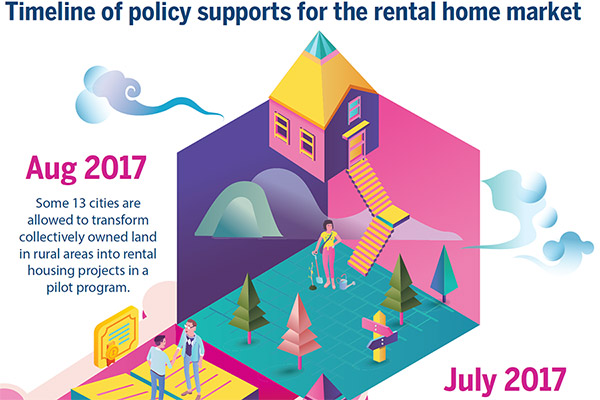E-commerce revenues soar in 2017
Thanks to the "real" economy, sales revenues for e-commerce in China reached 320 million yuan ($49 million) between January and August, surging 34.3 percent over the same period last year, which a recent study suggests could be a very positive trend.
The study, conducted by the China Council for the Promotion of International Trade Academy, found a U-curve growth of e-retailing sales in China?- in 2014, sales growth was nearly 50 percent. The figure dropped to 33.3 percent in 2015, and then 25.6 percent in 2016. Not until the first eight months this year did the growth catch up, reaching 34.3 percent.
"The phenomenon not only resulted from the innovation-driven development of e-retailers themselves, but more importantly it can be attributed to the influence of the real economy, in that physical stores accelerated the discovery process of e-retailers and promoted online and offline integration," said Zhao Ping, director of the international trade research department at CCPIT Academy.
Lu Ming, vice dean of CCPIT Academy, said "with China's rapid social economic development under supply-side reform, the relationship between real economy and e-commerce has completed the transformation from exclusive and confronting, to cooperative and integrating."
The 2017 Government Work Report instructed that all types of businesses should play to their own strengths to promote the benign development of online and offline stores. The guideline on e-commerce in the 13th Five-Year Plan also pointed out that fair competition between real economy and e-commerce should be promoted, and the strengths of both parties should benefit each other.
Fu Yuehong, president of Beijing Capital Retailing Group, the parent company of Yansha shopping mall, said "e-commerce is boosting the development of physical stores. We can take advantage of e-platforms to make promotions and have online interactions with customers. We have also set up e-memberships in our stores, which is a very useful marketing strategy."
"Nowadays, online and offline stores are more complementary, all striving to offer better shopping experiences for the consumer. The ideal status of an internet economy should be an integration of real economy and e-commerce, looking for win-win cooperation," said Wang Xiaoli, EKA director of global food and beverage giant Nestle.
However, online and offline businesses still face inevitable problems, including unfair competition. Ren Xingzhou, former head of the market economy research institute under the State Council's Development Research Center, said tax evasion happens with some e-retailers, who are free of supervision from local industrial and commercial authorities.
"To build a fair environment for both online and offline business, the government should reinforce its tax supervision system, setting up a unified criterion," Ren said. "Whether an online or offline business, every store should have its own tax identification number. In this way, every transaction can be traced and no merchant can be exempt from paying taxes."

























